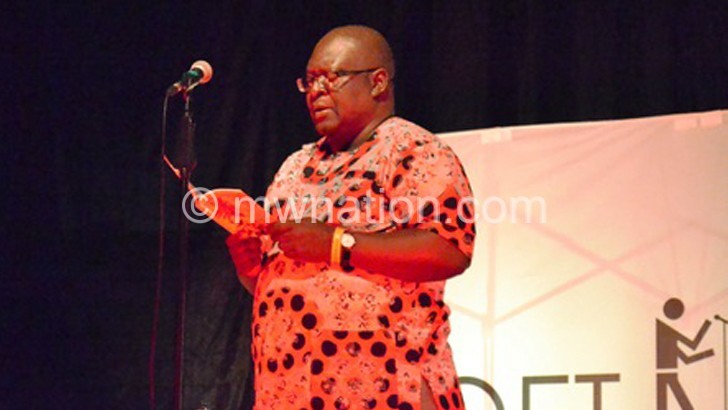Conversations on ‘dying’ poetry
During the launch of a poetry anthology, Rising Voices by Mashallo Samilo and Wokomaatani Malunga, a rushing reverie about the belles-lettres consumed my mind, luring me into making conversation on apparent fading standards in poetry.
Looking across the room at Jacaranda Cultural Centre, I could not help, but wonder at the gathering of seasoned and up-and-coming poets that had filled the hall. I wondered; where have the verses gone and what does the future hold?

Sooner, UK songbird Annemarrie Quinn was performing on stage. And as the recitals filled the air, voices could also be heard whispering in literary conversation.
Temwani Mgunda, a renowned writer whose entry The Slums of Mbayani has just won him the prestigious 2022 African Writers Award for Poetry was present, sitting next to me. Turning to his shaggy head, I said: “Congratulations for the award, chief”.
He responded: “Congratulations, only?”
I chuckled at the question realising he had been drunk on empty compliments that left him prideful, but penniless.
As we conversed, I recalled the days of yore. I harked back to my days of poetry in secondary school but ill at ease, telling him how the flair had faded and given up to prose.
“So, the poet, is really dead? It’s not too late, you can resuscitate it,” Mgunda interrupted.
But then, he continued: “You see, the problem is that in the present day, it is difficult to practice some serious writing in Malawi”.
I gazed at him, thirsting that he explicates his hefty claim.
“Thing is, not only has writing as a career become lesser rewarding. But the mushrooming of substandard work, especially in the Chichewa verse has made the literary space even more unpromising.
“For example, the Rising Voices authors will have to compete against some second-rate vernacular verse that is now enjoying popularity,” explained Mgunda.
We delved deep into the vanishing culture of publication, book launches and how mediocre poetry has adulterated the art via electronic media.
It was clear at this point that the spontaneous talk with Mgunda had provoked critical issues that deserved further comments.
When I put it to the old hand himself, Malunga was passionate about the subject. He did not repress it and his sentiments were mighty mean.
He made reference to what one of the guests, Asante Mtenje, an associate professor of literary studies at the University of Malawi, had said in her presentation.
Malunga said: “You remember what she said that not everything that is written in stanzas is poetry? Poetry is a genre with its own rules and conventions. Publishers want quality not quantity. The challenge we have now is that it is relatively easy for you to find an outlet for poetry, like on radio even if it is not properly distilled.
“When some of us were in college, the Malawi Broadcasting Corporation set very high standards to the extent that if you wanted to contribute for Writers’ Corner, you had to undergo serious scrutiny because they had capable people to do that,.
Malunga further tore into declining standards in recitals and a loss of creativity among poets. Apart from declining education levels, he also criticised a dying reading culture among contemporary writers, saying the way one writes is a reflection of how sound their education is.
The Ndidzakutengera Kunyanja Ligineti composer cried that those that are not exposed to good education cannot spell words and write well, even if they are writing in Chichewa.
Malunga said: “The majority of people calling themselves poets are people who just get hold of the pen upon listening to someone recite and say I can do what that guy does. The way I speak is not different from the way I recite.
“I don’t pretend to be what I am not. I would like a Chiwamba to sound like a Chiwamba, a Nyamalikiti to sound like a Nyamalikiti and a Kalizang’oma to sound like a Kalizang’oma.”
There is strong belief that Malawi’s golden age of poetry has gone down in memory with the craft of Jack Mapanje, Frank Chipasula, David Rubadiri and Anthony Nazombe, among many other greats.





